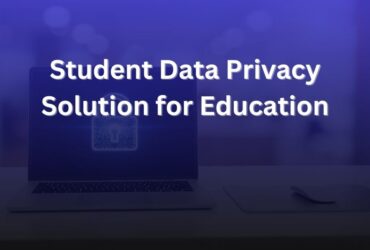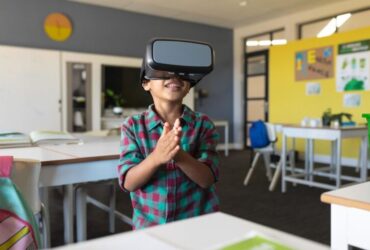In an age where digital literacy is as crucial as traditional academics, schools are increasingly recognizing the need to prepare students for the realities of online life. At the forefront of this movement is Georgia’s DeKalb County School District, where an ambitious new initiative is turning students into informed, responsible leaders in the digital world.
Spearheaded by Dr. Shanique Worthey, Manager of Security Awareness and Engagement, in collaboration with Eric Logan, Director of Information Security, the Cyber Champions Program is redefining what it means to teach digital citizenship in K–12 education. Designed to encourage dialogue, leadership, and applied learning around issues like cybersecurity, online ethics, and artificial intelligence, the program has quickly evolved from a pilot idea into a district-wide phenomenon.
Originally envisioned as a small group of 25 students participating in monthly virtual meetings, the program’s inaugural call for participants drew an overwhelming response—over 100 students immediately applied. That groundswell of interest underscored just how much students are craving meaningful engagement in topics that affect their digital lives.
“We were expecting a handful of tech-interested students. What we got was a movement,” Worthey explained. “The interest was immediate and passionate, and it made clear how important these conversations are to our young people.”
With DeKalb County School District serving over 92,000 students across 137 schools, the potential for reach and impact is significant. But such success also brought logistical challenges. To manage the rapidly expanding interest, Worthey and Logan recruited a dozen volunteer teachers to help facilitate the sessions, breaking students into smaller, age-appropriate groups for more personalized instruction.
These monthly virtual meetings cover a wide array of digital themes, including how to use artificial intelligence ethically, understanding online privacy policies, safe social media behavior, and being aware of cyber threats. But the innovation of the Cyber Champions Program lies not just in its topics, but in how the knowledge is shared.
Rather than being passive recipients of information, students take the lead. After each session, they are required to create their own presentations based on what they’ve learned and share those lessons with peers back at their respective schools. This peer-to-peer model does more than reinforce retention—it cultivates leadership, public speaking, and the confidence to initiate critical conversations about technology within school communities.
“They are truly champions,” Worthey said. “They are the ones carrying the message forward, teaching classmates, presenting to parents, and even standing in front of district leaders and professionals.”
In fact, many students have gone on to represent their schools at PTA meetings, participate in community tech cafés, or deliver morning announcements on digital safety tips. Several have competed—and excelled—in district tech fairs. One standout student was even invited to sit on the student panel at the Tech & Learning regional summit, reflecting the broad recognition these student leaders are beginning to receive.
Keeping content relevant and timely has also been a cornerstone of the program’s success. Worthey explains that each monthly lesson is crafted around real-world scenarios and issues students face. During the holiday season, for instance, students explored the risks of online shopping scams and how to protect themselves. In other months, they’ve examined the ethics of AI tools like chatbots and how to determine whether it’s appropriate to use such tools for schoolwork or personal inquiries.
“We theme the curriculum around what’s already happening in students’ lives,” Worthey said. “When the content connects to their real-world experience, they take ownership of the knowledge—and that’s when the real transformation happens.”
This personalization extends to the teachers as well. While Worthey provides templates and suggested lesson plans—often sourced from platforms like Microsoft Education and Common Sense Media—volunteer teachers are encouraged to adapt the material to their teaching style and student group. This flexibility ensures that the program isn’t one-size-fits-all and allows facilitators to draw on their own strengths to engage students more effectively.
But facilitating a program of this scale doesn’t come without hurdles. One of the ongoing challenges Worthey and her team face is securing compensation for the volunteer teachers who dedicate their time and energy to mentoring students. While financial support hasn’t yet been available, Worthey remains optimistic and is actively pursuing funding opportunities to ensure the sustainability of the initiative.
In the meantime, she’s working hard to keep morale and enthusiasm high. Volunteer teachers were surveyed to determine how they’d like to be recognized for their efforts. Some requested public acknowledgment during end-of-year celebrations, while others preferred practical incentives like gift cards, merchandise with the Cyber Champions logo, or mentions in district-wide communications.
“We may not have the funding just yet, but we’re doing everything we can to make sure our volunteers feel seen, valued, and appreciated,” said Worthey.
The benefits of the Cyber Champions Program extend far beyond the school year. By involving tech industry leaders, including representatives from Microsoft, Google, and even initiating dialogue with the local FBI office, the program is opening doors for students to learn about career pathways in cybersecurity and technology. Through exposure to these organizations, students gain insights into professional certifications, internship opportunities, and the long-term impact of ethical digital behavior.
“Our students aren’t just preparing for the next test—they’re preparing for life,” said Logan. “By the time they graduate, many of them will have a head start on tech careers and college readiness that puts them miles ahead.”
Perhaps the most compelling aspect of the program’s growth is the culture it’s building—one of peer empowerment, digital responsibility, and community connection. Parents and community members are beginning to see the Cyber Champions as a bridge between home and school, helping translate complicated tech issues into understandable, actionable guidance.
To sustain and scale the program, Worthey has implemented a creative recruitment strategy. At the end of each cohort, students are asked to create 30–60 second videos explaining why others should join. These personal stories, shared in students’ own voices, have become some of the most powerful tools for inspiring the next generation of digital leaders.
Looking ahead, Worthey envisions Cyber Champions becoming a permanent fixture not just in DeKalb County, but potentially across other school districts as well. Her ultimate goal is to create a replicable model that schools nationwide can adopt to cultivate student leadership in digital citizenship.
“This is more than a program. It’s a movement,” she said. “It proves that when you empower students and give them a platform, they will rise—and they will lead.”
As schools grapple with how best to prepare students for a world increasingly shaped by technology, the Cyber Champions Program offers a compelling answer. It’s a model rooted in empowerment, collaboration, and relevance—one that elevates students from passive tech users to proactive digital citizens.
In a time when misinformation spreads quickly, data privacy is often overlooked, and AI continues to evolve rapidly, programs like this are not just beneficial—they are essential.
And thanks to visionaries like Dr. Shanique Worthey and Eric Logan, the path forward is not only clearer—it’s brighter.












































Leave a Reply